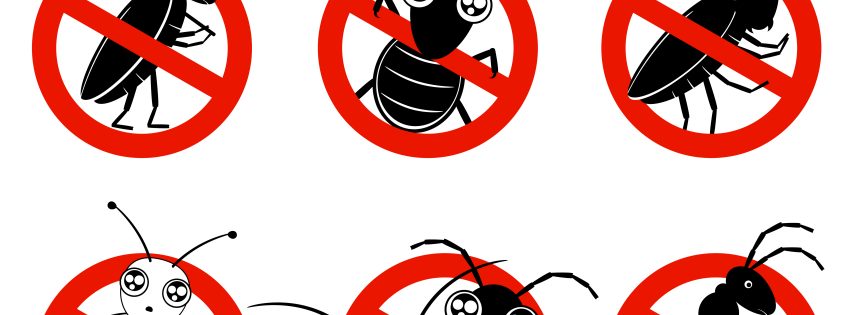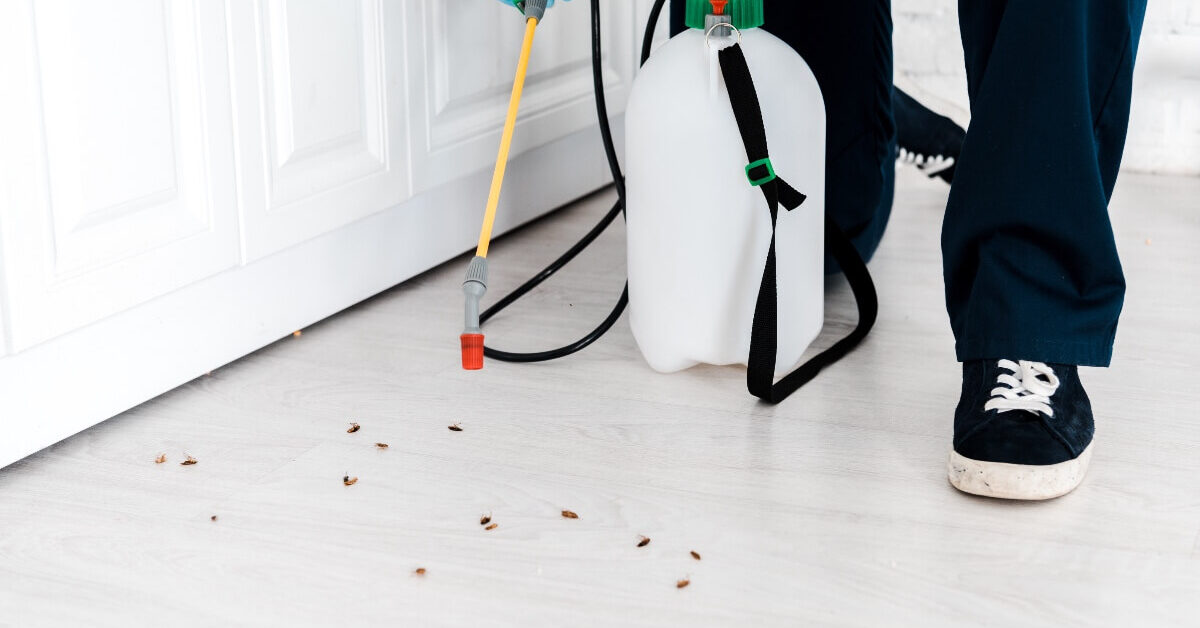Best Pest Control in Charlotte County for Your Property and Business
Reveal the Importance of Pest Control in Preserving a Healthy And Balanced Setting and Therapy Strategies

The Function of Insects in Communities
Bugs, commonly checked out exclusively as hassles, play a diverse function in communities that is crucial for keeping ecological equilibrium. They contribute substantially to various ecological procedures, consisting of pollination, nutrient cycling, and parasite control. Lots of insect species, such as bees and butterflies, are vital pollinators for a broad array of plants, which in turn supports biodiversity and food manufacturing.
Additionally, bugs work as victim for many killers, producing an important web link in food webs. This connection guarantees the survival of various types and assists control populaces within environments (Termite treatment Port Charlotte). Moreover, decomposer bugs, such as certain beetles and fungis, are instrumental in damaging down natural matter, hence enriching soil and helping with vitamins and mineral recycling.
Alternatively, while insects can be helpful, their overpopulation or intrusion into non-native environments might disrupt these environmental functions. This complexity highlights the relevance of understanding parasite dynamics, as efficient parasite administration approaches must consider both their eco-friendly roles and possible influence on human activities. Stabilizing pest existence while minimizing injury is necessary for protecting the honesty of environments and making certain farming efficiency.
Wellness Risks Connected With Pests
The presence of insects in various settings prolongs past their eco-friendly functions, as they also posture significant health risks to animals and humans. Several pests, including rodents, bloodsuckers, and insects, are carriers of diseases that can have significant health and wellness effects. For instance, rats are understood to transfer hantavirus and leptospirosis, both of which can bring about severe respiratory system and renal concerns, respectively.
Bugs such as insects and ticks are notorious for spreading vector-borne conditions like malaria, dengue fever, and Lyme disease. These ailments can result in high morbidity and mortality prices, specifically in prone populations. Furthermore, parasites like bedbugs and cockroaches can exacerbate allergies and asthma, contributing to breathing troubles in people, particularly those with pre-existing conditions.
In addition, the presence of pests can lead to emotional tension and pain, influencing overall well-being. Contamination of food and surface areas by parasite droppings and stays can result in foodborne diseases, highlighting the importance of maintaining hygienic conditions. Understanding the health risks connected with parasites is vital in acknowledging the requirement of effective parasite administration methods to secure human and animal wellness.

Benefits of Effective Parasite Control
Reliable parasite control is important for preserving a healthy and risk-free atmosphere, as it continually reduces the countless dangers connected with insect problems. Among the key benefits of efficient pest monitoring is the reduction of health and wellness dangers. Parasites such as mosquitoes, rodents, and roaches are vectors for illness that can influence both pet dogs and humans. By controlling these populations, the possibility of condition transmission is significantly reduced.
In addition, efficient pest control safeguards residential property and frameworks from damage. Many parasites, like termites and woodworker ants, can cause extensive structural damage that may call for pricey fixings. By proactively managing these infestations, organizations and home owners can safeguard their investments.
Another substantial advantage is the enhancement of total quality of life. A pest-free atmosphere adds to mental wellness and lowers stress connected with infestations. In addition, reliable pest control promotes a much safer try this web-site atmosphere for animals and kids, guaranteeing that homes continue to be havens devoid of disease-causing microorganisms and hazardous chemicals.
Common Parasite Control Techniques

In the world of insect administration, numerous methods are employed to deal with problems properly. These methods can be broadly categorized into 3 primary techniques: social, mechanical, and chemical Source controls.
Social control involves modifying methods to minimize parasite establishment, survival, and reproduction. This may include crop rotation, proper cleanliness, and environment manipulation, which jointly create a setting less conducive to pest proliferation.
Mechanical control employs physical methods to eliminate pests (Termite treatment Port Charlotte). Strategies such as obstacles, vacuums, and traps are commonly made use of to directly eliminate parasites from an area. This strategy is especially reliable for managing rats and pests without using dangerous chemicals
Chemical control includes the application of pesticides to take care of parasites. These materials can be categorized right into herbicides, pesticides, and fungicides, each targeting certain kinds of pests. It is vital to utilize these chemicals judiciously, adhering to security standards and guidelines to minimize possible injury to non-target varieties and the setting.
Each insect control strategy has its constraints and benefits, and commonly, an integrated approach combining multiple approaches yields the very best cause maintaining a pest-free atmosphere.
Sustainable Pest Management Practices
Sustainable bug monitoring methods incorporate a variety of strategies designed to lessen environmental impact while successfully controlling insect populaces. These methods focus on using ecologically friendly techniques over chemical pesticides, consequently minimizing the danger of damage to non-target species, consisting of helpful bugs, wildlife, and people.
Integrated Insect Administration (IPM) is a foundation of lasting methods, combining biological, cultural, mechanical, and chemical tactics to manage bugs. For example, organic control involves introducing natural killers or how to control paste bloodsuckers to suppress pest populaces. Social techniques, such as crop turning and polyculture, interrupt pest life process and improve ecological community resilience.
Mechanical techniques, such as barriers or traps, can effectively stop pest accessibility without chemical treatment. Additionally, keeping healthy and balanced environments with appropriate soil administration, plant health and wellness, and biodiversity can normally mitigate insect problems.
Education and learning and awareness are essential components, empowering people and communities to identify parasite dangers early and implement safety nets. Termite treatment Port Charlotte. By fostering an alternative technique that stabilizes insect control with eco-friendly stability, sustainable insect monitoring methods not just safeguard frameworks and crops but additionally add to a much healthier setting for future generations
Verdict

Comprehending the health risks connected with insects is crucial in identifying the requirement of efficient insect management strategies to guard human and animal health and wellness.
Effective parasite control is crucial for keeping a healthy and balanced and risk-free setting, as it constantly mitigates the numerous risks associated with pest problems.Integrated Parasite Administration (IPM) is a cornerstone of sustainable methods, integrating organic, social, mechanical, and chemical strategies to take care of insects. By recognizing the duty of parasites, recognizing involved wellness risks, and using diverse therapy strategies, a sustainable technique to pest administration can be accomplished. Integrated Insect Monitoring (IPM) stresses an all natural approach that alleviates damage to advantageous organisms while efficiently managing bug populations.